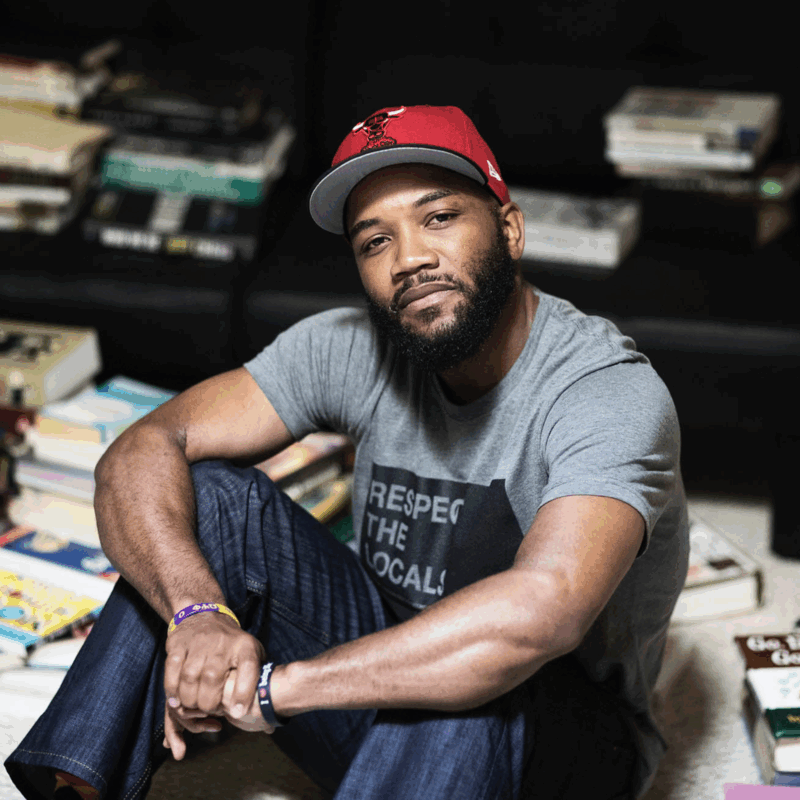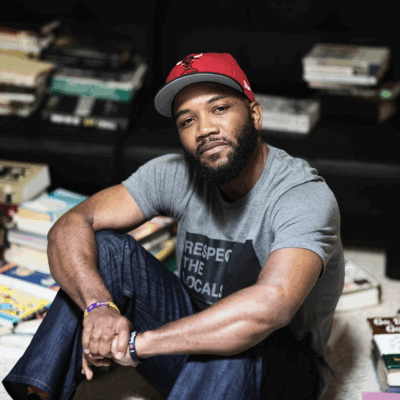Love them or hate them, zombie stories remain popular because they represent the nagging fear that the problems we allow to persist will eventually overpower us. Zombies are husks, barely recognizable as humans, possessing our shape and our need to consume but lacking morality, symbols of our collective failure as a society.
In the 52 years since Night of the Living Dead revolutionized the genre, many of those problems have remained unsolved, and are therefore frequent themes for zombie films: racism, consumerism, inequality, militarism, and a lack of faith in the institutions designed to protect humankind.
In Blood Quantum, from filmmaker Jeff Barnaby, the undead invasion parallels an even deeper, centuries-old tragedy: colonialism. A mysterious virus arrives by water and soon spreads to the entire region, confining the Mi’kmaq survivors to the Red Crow Reservation, where hordes of invaders are intent on wiping them out. (“Blood quantum” itself refers to laws first created in the Colonial era, the ratio of one’s ancestry that determines status as a Native American. The laws were often used to persecute, to facilitate extermination and forced relocation, and have been blamed for creating racism where none existed within tribes.)
Blood Quantum
R, 96 minutes
Streaming (Shudder, Amazon Prime)
The story is frighteningly prescient, not only given the current global pandemic, but as the Cheyenne River Sioux and Oglala Sioux tribes are battling with the governor of South Dakota for their right to maintain checkpoints on all roads leading in and out of their reservations due to coronavirus. Barnaby could not have predicted the specific events of today when he wrote and directed the film, which premiered at festivals last year, but it feels ripped from recent headlines.
As with many of the best horror films, Blood Quantum is scariest when it explores the plausible consequences of fantastical events. After the scramble to understand this virus, the Mi’kmaq learn that they are immune, and that the Red Crow reservation’s remote location is strategically useful in keeping out unwanted elements. But the immunity is no boon, as they are still in danger of being eaten alive, and geographic isolation means being confined behind metal walls until they die or are overtaken. The promise of staying alive is enough for some survivors, while others cannot envision a future within the fortress’ walls, succumbing to drugs, anger issues, and other destructive behaviors. Each solution only creates a new problem; reservations did not erase the ills of colonization, and the strongest walls do not protect against self-destruction.
Barnaby shows his extensive knowledge of zombie film history, and draws on those movies’ stylistic innovations to build the foundation for Blood Quantum. But even the most seasoned genre fan will be taken aback by some moments, especially in the film’s first act. In the opening scene, we see gutted fish begin to flop on dry land, and it’s disturbing, even for a genre built on shock value.
The opening credits also pack an emotional punch, revealing structures like bridges and buildings from uncomfortable angles. You might not expect the sight of a bridge at a 90-degree angle to be so jarring, but when viewed in the context of an imminent catastrophe, it’s quite effective. The structures we’ve built, whether physical or institutional, have become hollow. At best, they are simply shapes in a barren wasteland, at worst, they hasten our doom. A bridge is no longer a bridge, it is a liability. A police officer has no more authority than a hooligan. Was it always this way? Was our existence always barely contained chaos, or had we fooled ourselves into believing we’d created order?
Of the zombie tales that came before, viewers might find the most similarity with “The Walking Dead”: a character-driven story where reckoning with the past is as vital as contemplating the future. Michael Greyeyes, who portrays former officer Traylor, was even featured on “Fear the Walking Dead” as Qaletaqa Walker. Greyeyes is an excellent anchor for the film throughout; in his former life, his every action suggested a man frustrated by powerlessness, but bound by an unspoken moral obligation to try and make change. His son, Joseph (Forrest Goodluck, The Revenant and The Miseducation of Cameron Post), frequently causes trouble with Lysol (Kiowa Gordon, Twilight), and though they commit petty crimes together, when push comes to shove it’s revealed how truly different they are. There are so many characters with terrific performances that the story might have worked best as a miniseries. But as it is, Blood Quantum offers plenty to enjoy and contemplate.





